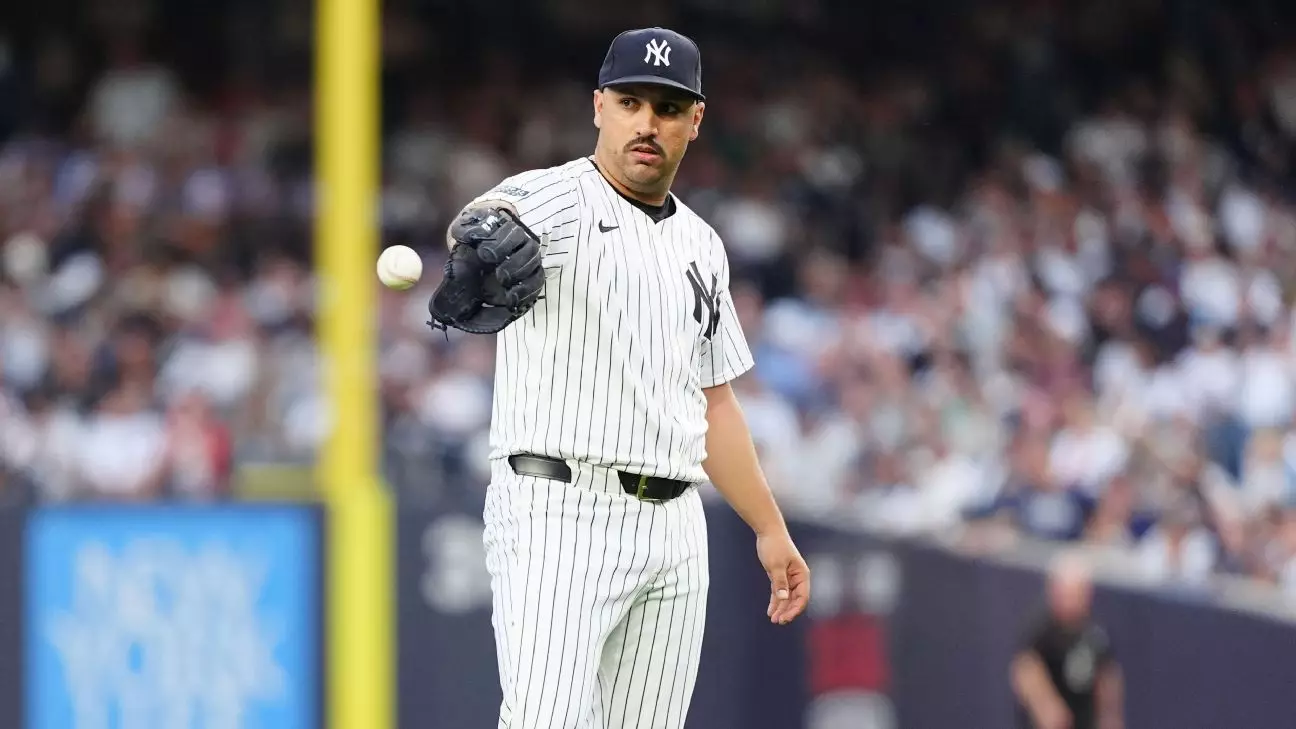In the world of professional sports, the balance between risk management and ambition often creates a complex narrative that athletes must navigate. This is particularly true for New York Yankees pitcher Nestor Cortes, who stands at a crossroads in his career. Following a recent diagnosis of a flexor strain, Cortes is faced with the daunting decision of whether to pitch in the World Series—an endeavor laden with both personal and professional implications.
Cortes’ situation underscores the intricate relationship between athletic performance and health. With flexor strains often serving as a harbinger of more serious elbow problems, continuing to pitch just four weeks post-diagnosis poses significant long-term risks. The implication of such injuries can be dire, potentially sidelining players for extended periods and substantially impacting their earning potential. As a free agent following the upcoming season, any injury could cost Cortes millions, amplifying the stakes of his decision.
Despite these serious considerations, Cortes has expressed a strong desire to play. He emphasized that the allure of a championship ring outweighs the potential negatives that could follow, stating, “If I have a ring and then a year off of baseball, then so be it.” This sentiment reveals a deep-seated ambition that resonates with many athletes: the pursuit of legacy often supersedes immediate concerns for health or financial stability.
What makes Cortes’ journey particularly remarkable is his unyielding resolve. Initially placed on the injured list just weeks before the championship games, the path to returning seemed steep. Conventional wisdom suggested that the timeline for a return was bleak, especially considering the Yankees would need to reach the World Series for Cortes to even entertain the idea of pitching again in 2024.
With grit and determination, Cortes embarked on a rigorous rehabilitation plan. After an essential 10-day period of rest following a PRP injection, he methodically increased his pitching intensity, progressing from short throws to full bullpen sessions. His determination culminated in a 28-pitch session against hitters, marking a significant milestone on his road to recovery. Cortes’ confidence shone through when he projected readiness for the World Series, provided he did not experience undue soreness.
Within the broader context of the Yankees’ strategy, the decision to include Cortes in the World Series roster requires careful deliberation. Manager Aaron Boone has indicated that Cortes has a “good chance” at securing a spot, which adds a layer of complexity to the team’s composition. The Yankees are still grappling with balancing their roster, contemplating whether to field 13 pitchers, 13 position players, or a combination thereof.
If Cortes is deemed ready to pitch, it is likely he would function primarily out of the bullpen, a shift from his role as a starter. The anticipation of his performance becomes twofold: he is tasked not only with holding down a formidable lineup but also managing his own physical limitations while doing so. Teams can sometimes err by overextending players’ workloads in high-stakes scenarios, and Cortes’ usage distribution needs to be tactical to avoid aggravating his injury.
Compounding the pressure is the Yankees’ matchup against a skilled lineup featuring standout hitters like Freddie Freeman, Max Muncy, and Shohei Ohtani. Cortes must consider how to effectively navigate these matchups, especially against a player like Ohtani, who can significantly alter the game’s trajectory. Cortes’ comment about pulling out “the kitchen sink” against Ohtani highlights the defensive mindset required when facing elite talent.
Ultimately, Cortes finds himself in a defining moment, one shaped by courage to pursue a dream and the wisdom to weigh the potential fallout. As he prepares for the highest level of competition in baseball, the narrative of risk versus reward continues to evolve, shedding light on the complexities faced by athletes striving for greatness. Whether this gamble leads to personal success or career setbacks, Cortes’ journey exemplifies the heart of sportsmanship—resilience amid uncertainty.

